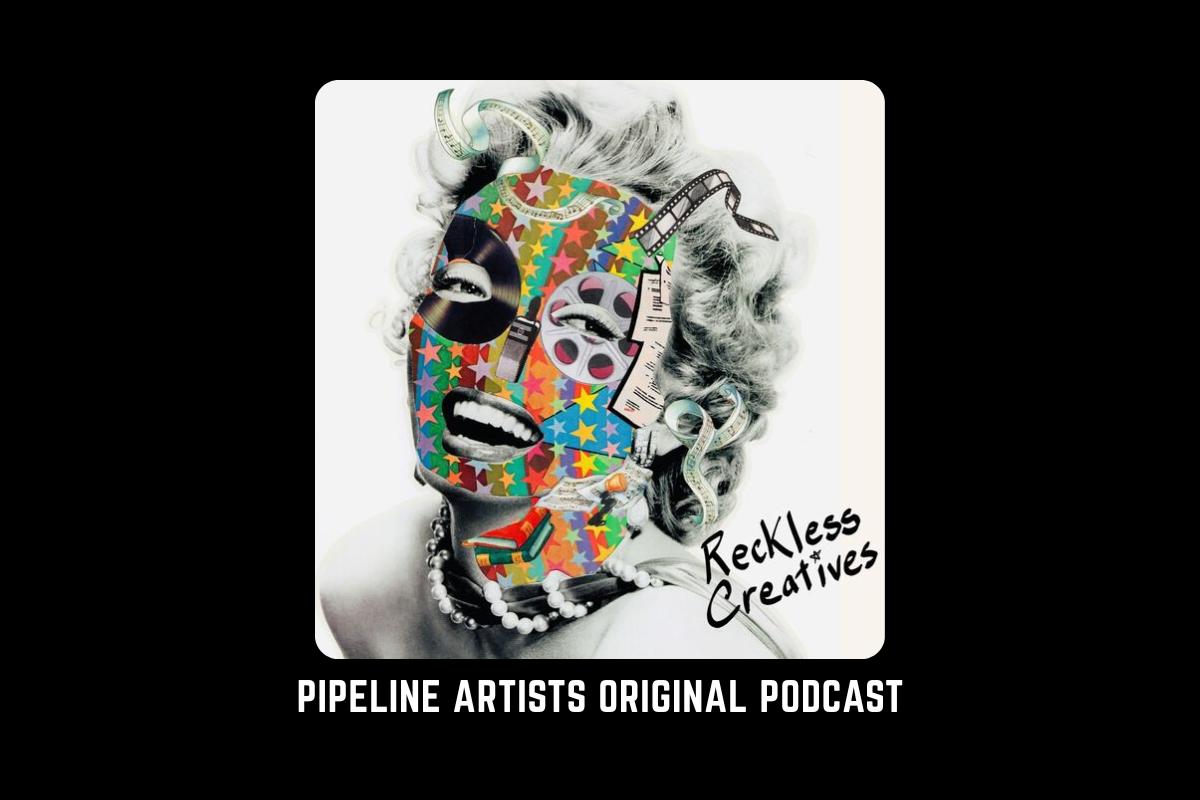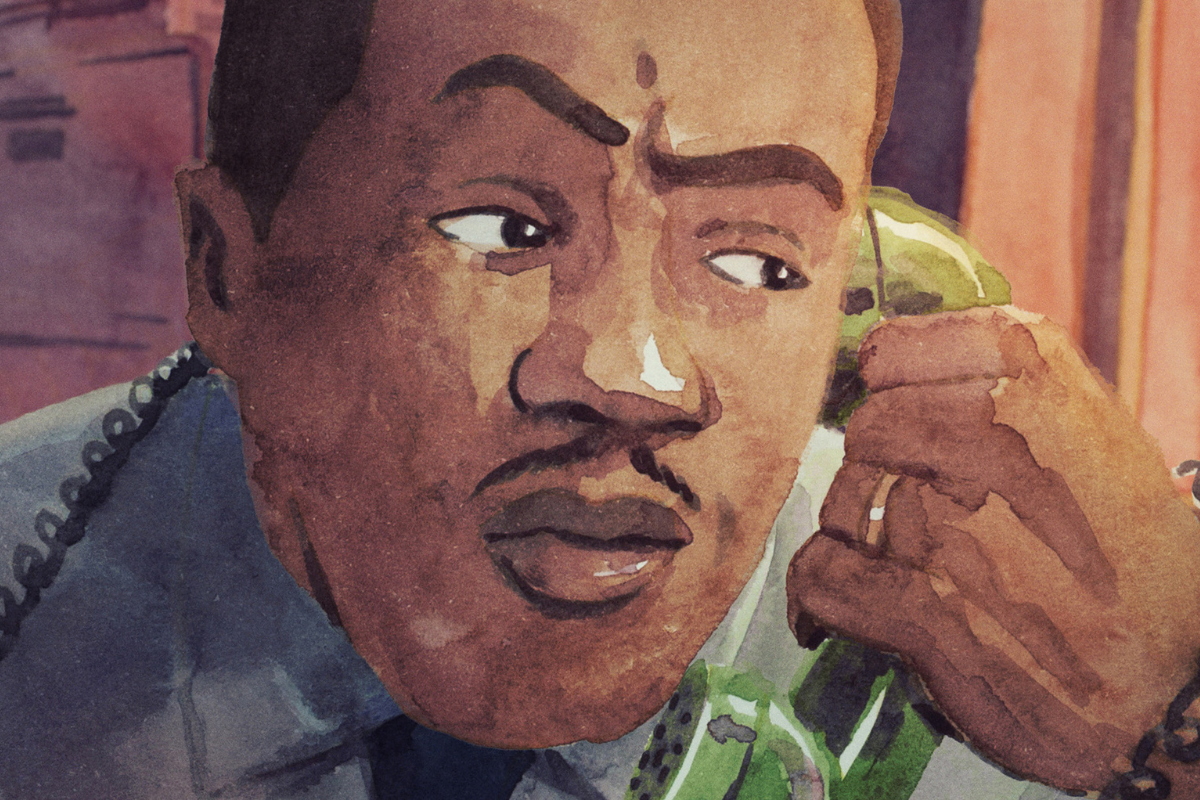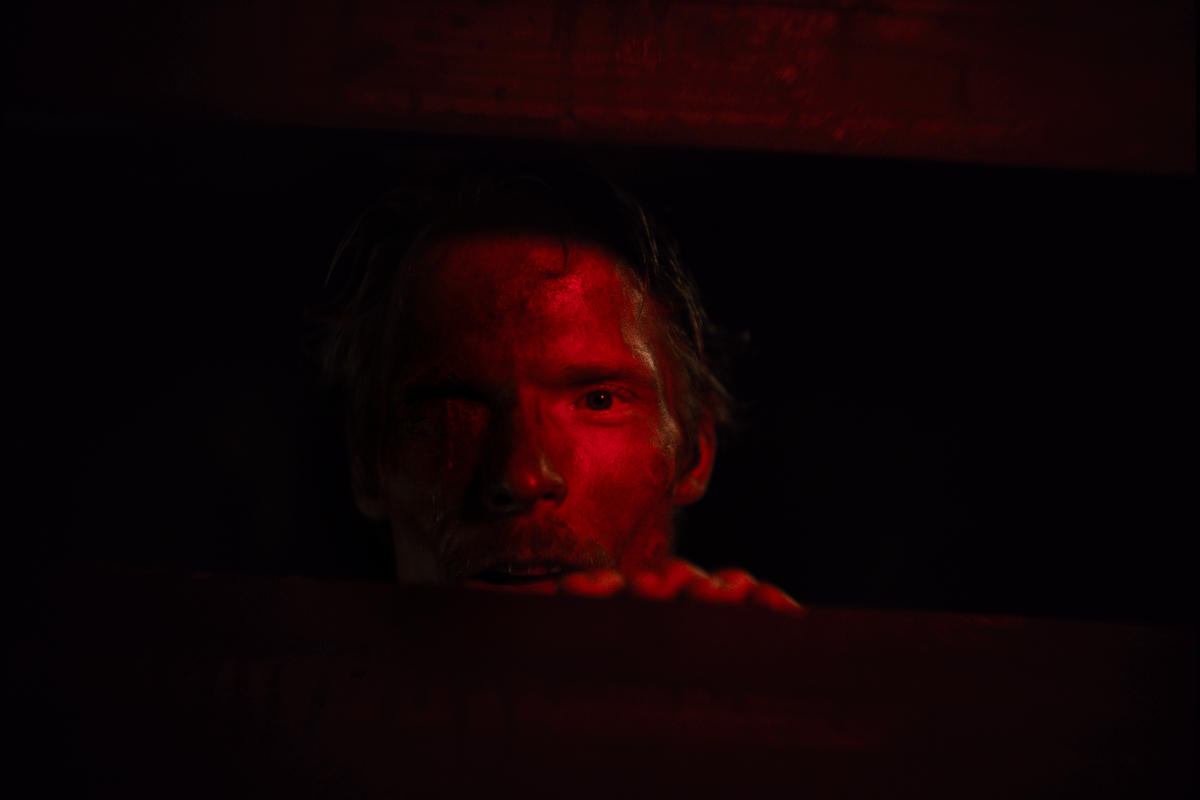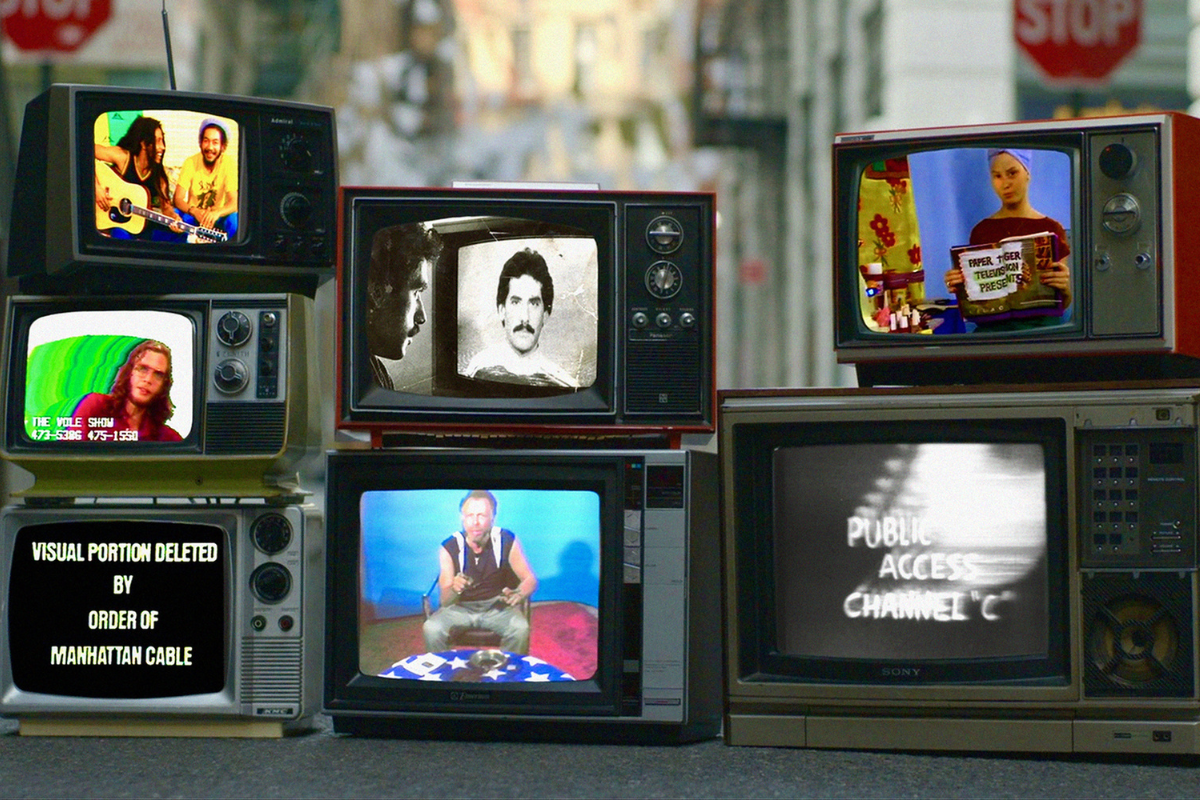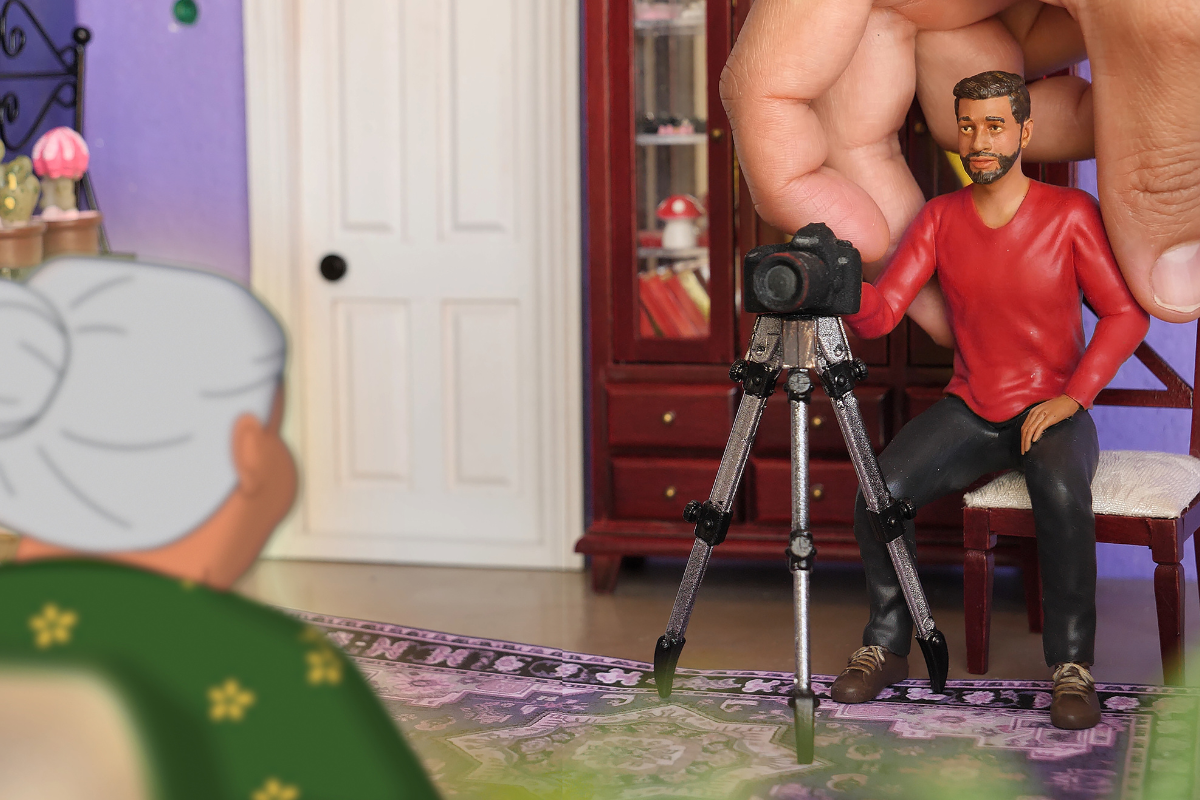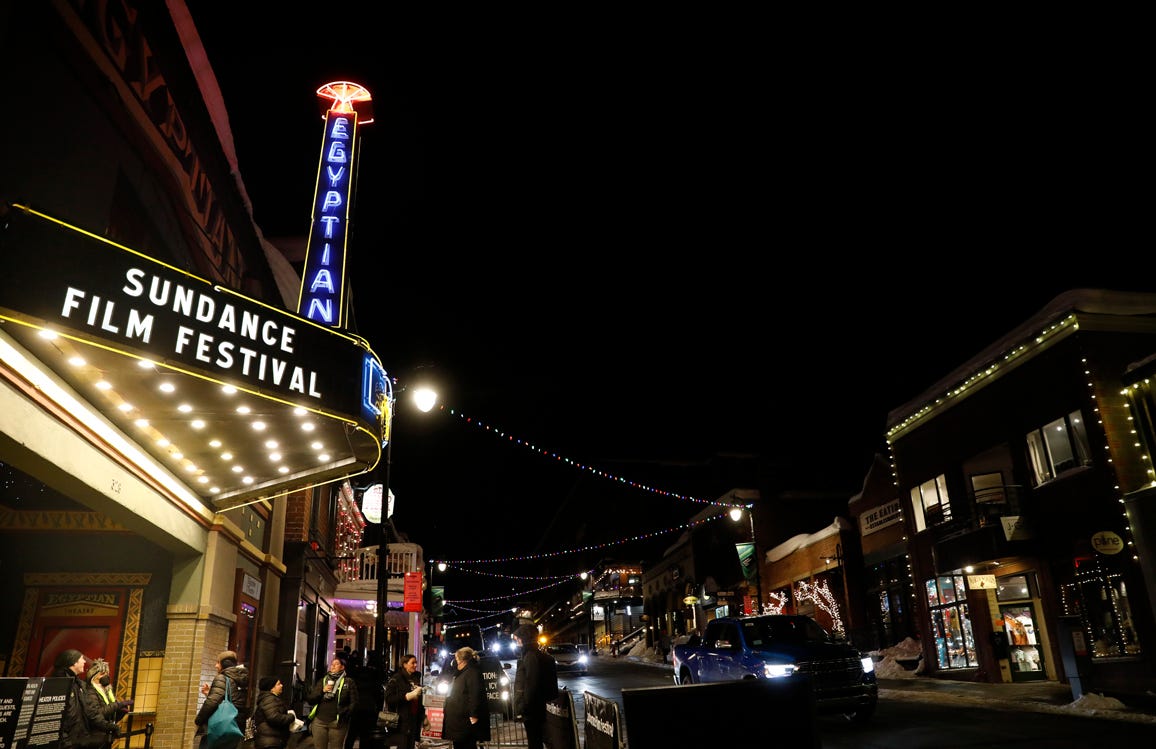Writers on the Web: Veteran Producer/Literary Manager Gary W. Goldstein on Breaking Into Hollywood (Part Two)
Rebecca Norris continues talking with Gary W. Goldstein about writers attracting representation, producing their own work, and Breaking Into Hollywood.
Rebecca Norris is a writer, producer, web enthusiast, and creator of the award-winning web series Split with her production company, Freebird Entertainment. She teaches webinars for The Writers Store on Writing The Web Series. Follow Rebecca on Twitter at @beckaroohoo.
Welcome to Part Two of my interview with veteran producer/literary manager Gary W. Goldstein (Pretty Woman, Under Siege, The Mothman Prophecies). Gary talks about the job of a creative producer, whether or not writers should produce their own work, how to attract an agent or manager, and Breaking Into Hollywood, his book and master course on becoming a successful screenwriter in Hollywood.
REBECCA: Many people don't have much of an understanding about what producers do. And there's all different levels of producers, which can be confusing. So can you describe what a creative producer does?
GARY: I can tell you what I do and have done as a creative producer. I think one way to define what it is to say what it's not. I'm not a line producer, so I am not in charge of the nuts and bolts of the schedule, the board, the budget, the day-to-day or the day out of days for the actors. All the day-to-day logisticals. I've done it, but it's just not my strength. I did it enough so I know how to talk to the line and hire a line producer.
You know, in the olden days things were different - titles today don't mean exactly what they used to mean. There were fewer producers back then, there are a lot more producers today. Today, different people can be the manager of the actor. There’s a lot of different kinds of attachments. In my case, I either came up with the idea for the movie, or I found the source material for the movie - it could have been an article, a book, an original idea, an existing screenplay, a book that needed to be adapted, and I would develop that with the writer.
As I was developing a screenplay and doing a lot of drafts, I was also at the same time trying to figure out who's the right cast, who's the right director, who's the right studio or company and distribution. To me, it's rearing a child and getting it up, you know, making sure it has the right friends and the right environment and the right asset tool kit. So as a creative producer I was always looking to populate the film up until the point where I have a great - I mean a shootable script, not just a good script, but a really brilliant screenplay and a great director. Once you have a director then a lot of it is very collaborative. You do the casting together, you never take your food to the restaurant. You never take a cast to a director. You make it together.
And this all takes place over literally an extended period of, maybe a couple of years, it could be more, every film is different. But to do those seven drafts to get the script just right and find the right talent and go through their handlers or find them and then lock that down, these things don't move quickly, these conversations.
But to me, a creative producer is the one who comes up with the essential idea, breathes life into it, makes it a concrete reality, populates it, and then is willing to see it through. You're on from the inception, all the way through the release of the film - the marketing and ad campaign. So there's a lot of different titles but to me a creative producer is really simply a part of the creative engine. Not the talent; the creative engine every step of the way.
REBECCA: That makes sense. When you were hiring writers, would you go to your stable of writers that you managed or would you look outside of that? What made you decide hire a particular writer for a project?
GARY: In general I looked at my stable. Again, in the early years I was a literary manager, not a producer. It wasn't until the writer's strike of '88 that I did my first super low-budget film and the universe handed me a set of circumstances where I had to figure out what to do with myself. Happily, I thought to make a film. That set me on a whole new trajectory.
But I wasn't really comfortable - I was a lawyer and my values and my lawyer background suggested wearing multiple hats was a conflict of interest. Representing a writer, taking a commission on their earnings and then turning around attaching yourself as a producer on their cut and taking a producer fee - there was something awkward about that.
REBECCA: Well, that's what people do now, it seems.
GARY: It's state of the art now. But back then it was not. In some cases, it's turned out to be a great thing, and in some cases it's a terrible thing. It depends on the experience of the producer-manager. And if they’re making real contributions. And that varies wildly. But I was not comfortable with that idea, so naturally I was looking at becoming more of a producer. There was only one client who came to me and said no, you're going to be my producer. And we had a very long history and it supported that. It was comfortable for both of us. We trusted each other, we'd been through tons of stuff together, sold a lot of films together and it was the next step in our evolution.
Looking back, whether it was indie filmmaking or studio filmmaking, the majority of writers that I've worked with - and this would be some of the directors as well - were not heavily credentialed. In fact, a lot of times they were brand new. Jon Bernstein, the writer of Ringmaster, he'd never been produced, he'd never written a film that got made. Jonathan Lawton, with Pretty Woman, same thing. Matt Reeves and his then-partner Richard Haddam, I sold a script to Warner Brothers that was their first script sale and that I got produced. Neil, the director of Ringmaster - also a first theatrical feature.
I'm forgetting my credits at the moment, I haven't had enough coffee, I'd have to go through the list, but a lot of the people that I've worked with were new - and I think it's because I developed that habit as a representative first. It was actually good to find people with no history, no habits, no bad habits, no bad relationships, just talent, and then I could form and shape that. I saw that as a plus.
I could sell them as ‘exciting new whatever,’ and I also never had to worry about friends they’d pissed off, or if they’d tried to sell ten scripts and they all failed and I just found that out. I liked the fact that they were sort of virginal; I was not a snob. I also worked with a lot of newer people who were not clients and eventually I dissolved the management company anyway, so no one was a client with me, which was good.
REBECCA: Now, I hear from my readers and many times they ask me, with new technology, should I self-produce my work? Is it worth it? Would that catch the eye of a manager or producer if I make a web series or a short film?
GARY: That’s actually a great thing that they're asking that question. It's music to my ears to learn that you're hearing that a lot. Because the answer is simple. Yes! Go forth and prosper.
As a manager, as any kind of representative, if the creative person were to just imagine putting themselves in the shoes of their future manager, their future agent, imagine what their day is like, what their demands are, what they're looking for, what makes a good client. What would excite them? The more determined or the more committed, the more activist, the more get it done…for a client, there's a consistency and a harmony in the universe. The more that's their orientation, the better the client they're going to make. They're going to be out making relationships and bringing them back to me. They're going to be co-creating opportunity with and for us--
REBECCA: --instead of waiting for the phone to ring.
GARY: The old song that we hear from time to time, “Gosh, my agent doesn't get me any work, I get my work and they get a cut." Well, that's exactly the way it's supposed to work. The agent is there to protect you, to navigate, to negotiate. Yes, to open doors, but they don't get you a job, ever. Because until you walk into the room and show up as the creative person that has the talent. We’re all looking for people who are not going to be a nightmare or that are truly open to hearing criticism - feedback - how do they handle that? How do they collaborate in teams, because we're in the most collaborative medium ever devised by humankind? It's important to understand that someone plays well on the playground. We're looking at all these things.
If they're out in the world and they are good at meeting people, that alone tells me there's a benefit. I do not believe that we live in a meritocracy. I believe that talent is truly, truly, madly, deeply important and yet it's not the most important thing. People are still human and they still like and deliver opportunity unto and hire and want repeat relationship with the people that they appreciate, admire, like, trust, know, feel comfortable with. If it's a choice between someone with a little bit more talent who is a bit of a difficult case versus someone with a slightly lesser talent but who I love working with and enjoy being around, you know who I'm going to hire.
REBECCA: Yep.
GARY: Whose script I'm going to buy or who I'm going to give the book adaptation project to, etc., whatever that is. The agent’s job is not to get you the job, the agent's job is to open doors, but your job is to open doors as a creator. You first. Because I've got thousands of writers in the world that I could represent. Why you? And it's not a one-way arrogant thing. It's just an honest conversation. How driven are you? How committed are you? If I send you into meetings are you going to sit there horrified and quiet or are you going to engage? Are you a good - I don't want to say are you good at pitching because that's a very specific term of art and it's important - but just as a human being are you comfortable in the room? Are you charming? Are you curious about people? Do you walk in the room happy with a smile on your face or are you a Nervous Nelly? I hate to say it but these things all matter.
This is a long preamble but it is all is relevant to your question which is: Do I want an activist client? Yes. Would I view it as an attractive and a great value if that activism took the form of going out into the world and creating short content whether it's a short film or a web series? Hallelujah. Give me short content - almost better than a feature film.
Because now you can extend your repertoire. Signs, a little 11-minute film with no dialogue, won the short category at Cannes Film Festival. If someone had brought that to me before it had won, I'd want to sign that team. The web series, Sanctuary, when you do that and you get that kind of audience, of course the SyFy channel had to program that as prime time series that went on for some years. So there's no snobbery - it used to be that there was snobbery between film and TV.
REBECCA: That's all gone.
GARY: Right? Oh my God, film people are dying to do TV. They want to tell stories over and over, these extended stories, these textured characters, developing characters and telling the storyline over five years or three years or eight years.
Talent in front of the camera and behind the camera are flocking to the small screen because who knew what TV would become. We're back in the golden age. Back in the day, I chose film because it was a more artful opportunity in my mind. So the snobbery about film and TV is gone but if you just extrapolate, the snobbery is gone period.
REBECCA: People just want to work.
GARY: People just want to create, and they want to create where it's smart. Because of some of the consolidation in the marketplace, if I want to go out and create a web series or a short film, the opportunity to bring in really good cinematography, really good production values from good actors, good everything, is so much greater today because they're not all consumed by the machine that was the Hollywood of yesterday. I can put an ad out on Craigslist and we would all be shocked at the caliber of people who show up and say yes, I'm raising my hand; I want to be a part of printing a great project. So the talent is there, the opportunity is there; the costs have skyrocketed downward in terms of your post-production, in terms of your equipment. I mean, what do you need? You need some locations, you need some actors, you need a camera or two.
REBECCA: And a laptop to edit on.
GARY: So from a representative perspective - again, putting yourself in the shoes of the potential agent or manager or lawyer or whatever it is. I define a team as much more than your representatives. I think it takes a team to create a success. The more you do on your own behalf the more likely you're going to be a great client and that we together will succeed at a higher level.
REBECCA: Love it. So, talking about new screenwriters and people trying to break in, tell us about Breaking Into Hollywood and how it benefits newbies.
GARY: Breaking into Hollywood is the output of the book that I wrote and self-published last year, which was just my choice to finally put down and codify everything that I knew truly worked, the strategies, the choices, the behaviors, the ideas that I activated in the real world while representing and launching total unknowns. Every client of mine was always brand new so I had to figure out how to open doors, take this total unknown and introduce them and get traction. Because if they didn't earn money, eventually they'd leave me and I wouldn't earn a commission and I'd be broke.
So the book was my effort at distilling and codifying all that I knew about going from zero to success as a creative on the streets of Hollywood. And the book was very very well received, but I noticed something. The smartest people would read it and then say “Oh my gosh, this is beyond helpful, I've never seen this information let alone organized the way it is. It's so clear and yet, there was always that punctuation--always that comma, “but,” or silence and then the question: What do I do now?
What they were really asking is how do I apply these obviously smart, productive strategies to myself on my own behalf? Because I'd never done it, I'm not a marketer. It's uncomfortable because I've been trained to believe it's uncomfortable, not because it really is. In fact, just the opposite. So I'll go on a dalliance just for a moment.
REBECCA: Okay.
GARY: The very person who says to me “Oh, marketing's a dirty word, I don't want to do it, I'm a creative, and this and that,” what they're really saying is “I'm terrified.” Not comfortable, I should say. “I'm not comfortable going out into the world, picking up the phone, walking into environments, talking about myself; I don't know how to do it. That's the truth.” But it's not true.
It's not true because if I take that very same creative and I disguise - I create this environment with only other creatives and there's drink in your hand, it's a relaxed environment, you're with creatives - they love nothing more than talking about what they like about the project they're working on, why they chose it, their background and why they're the best writer for this project. They'll tell you exactly all the things that they should be talking about. But as soon as you frame it up as sort of a formal “pick up the phone and call so and so,” it has attached to it all these other energies and ideas that make people feel awkward.
REBECCA: That’s so true.
GARY: So the book clearly became very helpful to people and yet they need know how to walk over that bridge and apply it for themselves and actually be the one to do it. To make those choices, do that research, identify like, who in the world would really make a difference? Who would make an amazing difference in your life if you have rapport with them? And take all the randomness out of it. This is not about who do you happen to come across, this is not about who do you meet at Starbucks or if you go to a film screening are you going to meet somebody there? And it's certainly not about buying a directory and sending out a creative synopsis in an email as a blind curie letter to hundreds and hundreds of agents and/or producers. That is the opposite of what I believe works and what I teach.
So Breaking into Hollywood is these ten modules that are about networking and branding and all of these very specific things. And I have a very – iconoclastic, or a very different view of what effective networking is for most - I'm told that I have a very different view from most people. It's very specific and there's a very specific progression.
There are things like: you may not ask big favors right up front, here's how you build rapport…I had the call, great, now they're waiting three weeks, they haven't heard their offer. What do I do? How do I follow up? And we billed it as - there's a diagrammatic truth about what works, because I had to do it year in year out for every new client I ever had. So I just delivered that in an interactive ten-module coursework that literally - and the whole thing is fill-in-the-blank, there's nothing conceptual, there's nothing chaotic. By the end of it you have a road map, you have an action plan that is so uniquely specific because your personality, your creative aspirations, the style of writing - everything you value is different from the next person.
So your roadmap is not going to look at all like theirs, but at the end you'll know exactly who you want to reach out to. You're going to have broken down the exact conversations from how you warm it up to how you cross that bridge and learn about them to how you position your follow up so you can talk to them three times within the next three weeks with ease. And you stay in control and know exactly when to bring up and how to bring up the first ask, but before that you also know how to add value.
Many people don't believe that they're equal to this. They don't believe that they have earned the right or that they're deserving, they think, “Why are they going to talk to me?” No. Because you're going to add value and here's the 12 ways that you can do it that you didn't even know you could do. When people hear that they're like “Oh my God, I can do that.”
Now it becomes fun. The whole idea is to make this easy. So Breaking Into Hollywood is very comprehensible, very actionable in 20-30 minutes a day, most of which is research. You make one or two calls a day - in 6-12 minutes you have leap-frogged your landscape professionally to such an extent that for many it's unrecognizable. Like they didn't know this was possible. And now, that whole thing about ‘If only I had an agent,’ they're not saying that anymore. Whether you have an agent or you don't have an agent, you're no longer in that mindset because now you know how to create measurable progress.
REBECCA: Because you're not waiting for somebody else to come and control your career for you while you sit back.
GARY: Yeah, and it's fun.
REBECCA: Wow. And so what has the journey been like producing your own YouTube web show, Breaking Into Hollywood? How's the audience responding to the content?
GARY: The show's very new. It's so fun. It's like a delicious meal for me because I get to call on either people who are friends of mine or people I meet through my friends who are very successful whether they're a writer, producer, director, maybe they're an expert on how to independently finance your film or on certain other things that are really relevant - how to create current content that we talked about. All sorts of stuff. The nice thing is that my guests are a self-defining audience, too.
The people who have achieved a great deal, so they've learned a lot, but they're also - and I make this clear early one - we're here to mentor, we're here to share, we're here not to tell war stories or be jaded or - that's not allowed. Those are not the rules of engagement. The rules of engagement are I need the greatest nuggets of wisdom that are actionable - not theoretical, actionable. I need you to tell people the best of what you've learned. What's important to think about, it's reshaped the way they see this opportunity.
So it's catnip for me because I get to talk about what I care about, what matters most to me - helping the storytellers of the world actualize their dream and these people are amazing and I get to befriend a lot of new people. I have people say, “Oh, you should have so and so as a guest on your show.” Hallelujah. And now, yesterday, I just had a call with Tom Schulman, an Oscar-winning screenwriter.
Tom Schulman, in the intricacies of historic Hollywood, is in some sense largely responsible for me being able to get Pretty Woman made at the studio level because he had a film, What About Bob, that was delayed from the depreciation of talent negotiation. We came in, swooped in, and became the film that filled the hole. We got Garry Marshall to direct, I mean, I had never met the man.
That’s one of many stories - but as new as the show is, I'm so ecstatic about the response to it because we not only put out the hour clips on our YouTube channel, but from those we edit a lot of short little things. And to me, I think we're doing something a little different, a little unique from what other people might be doing, and I love doing it and the guests are really enjoying it, and the clients are responding. We get a lot of beautiful feedback incoming, so I don't see any end to this. I literally don't see an end to it. I think we could be doing this for some years and I'm already thinking like how to we expand on this, how do we dress it up, but I kind of like the simplicity of just two people in the comfort of their home in their literal or metaphoric pajamas, so comfortable, no stress, just talking about really what they deeply know and care about and think is interesting.
REBECCA: It's intimate, it's cozy. I like that it's not a huge Hollywood production.
GARY: I may be the most surprised. I didn't know how much I would like it. But it's really fun. I get to talk to really smart, wonderful people and get them to share with everyone whatever is best to share.
REBECCA: And one last question. What are you working on next? What’s next on your slate of projects? Besides all of this?
GARY: Well, I'm really committed to Breaking Into Hollywood first and foremost right now because it's new and there's so much beyond the coursework that I want to finish creating, some of which I've started. As I learn what people really need, there's some very specific stand-alone mini-courses, there's another book that I'm going to write, there's just more pieces to it. I'm going to bring in amazing people for a live event that has a couple of pieces to it that are a little different and unusual.
I think I want to go back and do something I once did and only experimented with, but now that I know how much I love it, I think I'm probably going to launch a very circumscribed of limited sort of mentoring program, because I like the actual empirical, street-level experience of creating success for folks and working with them directly. Not a one-on-one, but a moderate-sized small group. So there's all these pieces and a lot more writing, a lot more content that I'm creating, plus I'm getting the edge so I think I'm going to be developing and continue to develop some short content.
REBECCA: Really?
GARY: Yeah, I'm getting the bug to take advantage of all the stuff we see in front of us. I heard the music; I want to dance.
Watch Breaking Into Hollywood on YouTube!
Check out Gary's master course, Breaking Into Hollywood!
Read more articles by Rebecca Norris
Interested in writing and producing your own work?
Rebecca Norris teaches you how to create your own web series
in the Writing The Web Series webinar
Rebecca Norris Resnick is a screenwriter, filmmaker, instructor for Writer’s Digest University, and columnist for Script Magazine. Distributed features include Cloudy With a Chance of Sunshine (Indie Rights and House Lights Media) and short films On Becoming a Man (Shorts International) and Toasted, which won the Canadian Film Centre’s ShortsNonStop competition. Rebecca’s films have screened in festivals worldwide including Cannes, Dances With Films, Hollyshorts, Manhattan Film Festival, Breckenridge Film Festival, and the Julien Dubuque Film Festival, and have won and been nominated for numerous awards. Rebecca is also an alumna of the ABC/Disney Television Discovers program, where her script Misfortune Cookies was performed in both New York and Los Angeles. When not working on her newest project, Rebecca stays on her toes chasing both her adorable daughter and her tuxedo cat, Sox.
Learn more about Rebecca at rebeccanorrisresnick.com.


